The many twists and turns of Julian Assange’s lengthy fight against extradition
The WikiLeaks founder faces extradition to the US over an alleged conspiracy to obtain and disclose national defence information.

Here is a timeline of some key dates spanning more than a decade of legal woes for WikiLeaks founder Julian Assange.
– 2010
– August: An arrest warrant is issued for Assange over two separate allegations – one of rape and one of molestation – after he visits Sweden for a speaking trip. He is questioned by police in Stockholm and denies the allegations.
– November: Stockholm District Court approves a request to detain the WikiLeaks founder for questioning on suspicion of rape, sexual molestation and unlawful coercion. An international arrest warrant is issued by Swedish police through Interpol.
– December: Assange presents himself to London police and appears at an extradition hearing where he is remanded in custody. He is later granted conditional bail at the High Court in London after his supporters offer £240,000 in cash and sureties. US President Donald Trump calls for the death penalty for Assange.
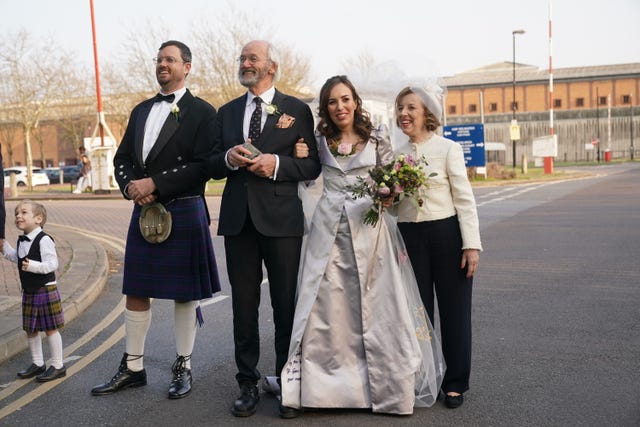
– February: District Judge Howard Riddle rules that Assange should be extradited to Sweden.
– November: Assange loses a High Court appeal against the decision.
– 2012
– May: The UK Supreme Court upholds the High Court decision.
– June 19: Assange enters the Ecuadorian embassy in London, requesting political asylum. A day later, Scotland Yard confirms he will be subject to arrest for breaching his bail conditions.
– 2013
– June: Assange says he will not leave the embassy even if sex allegations against him are dropped, because he fears moves are under way to extradite him to the US.
– 2014
– July: Assange loses a legal bid to have an arrest warrant issued in Sweden cancelled.
– 2015
– August 13: Swedish prosecutors drop investigations into some of the sex allegations against Assange due to time restrictions. The investigation into suspected rape remains active.
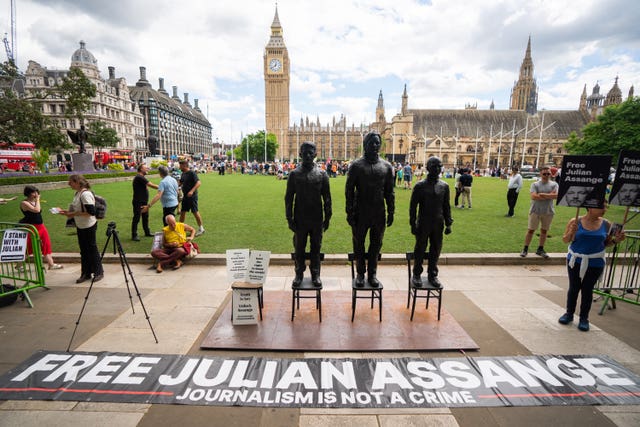
– 2016
– September 16: Sweden’s Court of Appeal rejects a bid by Assange to have his sex assault warrant dropped.
– October: WikiLeaks publishes Democratic National Committee emails to the political benefit of Mr Trump, who remarks during his campaign: “I love WikiLeaks”.
– November 14: Assange is questioned for two days at the Ecuadorian embassy in the presence of Sweden’s assistant prosecutor, Ingrid Isgren, and police inspector Cecilia Redell.
– 2017
– January 17: Barack Obama’s decision to free Chelsea Manning prompts speculation over Assange’s position.
– April 21: America’s attorney general, Jeff Sessions, says Assange’s arrest is a “priority” for the US.
– May 19: An investigation into a sex allegation against Assange is dropped by Sweden’s director of public prosecutions.
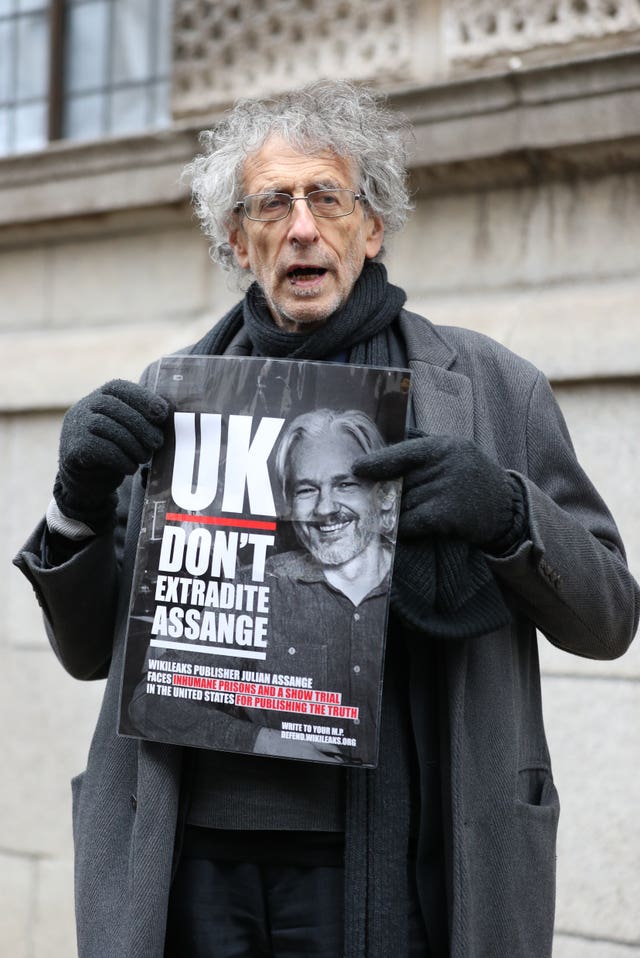
– December: It is claimed that unnamed US figures who have been paying a security contractor to bug Assange in the Ecuadorian embassy have discussed a desperate plan to kidnap or poison him.
– 2018
– August 9: The US Senate Committee asks to interview Assange as part of its investigation into alleged Russian interference in the 2016 presidential election.
– September 27: Assange steps down as editor of WikiLeaks.
– 2019
– January: Mr Trump claims to know nothing about WikiLeaks, only that “there is something having to do with Julian Assange”.
– January 10: A legal defence fund is launched for Assange amid fears he is under “increasingly serious threat”.
– January 23: Lawyers for Assange say they are taking action aimed at making Mr Trump’s administration reveal charges “secretly filed” against him.
– March: Ms Manning is jailed again for refusing to give evidence to a grand jury investigating WikiLeaks.
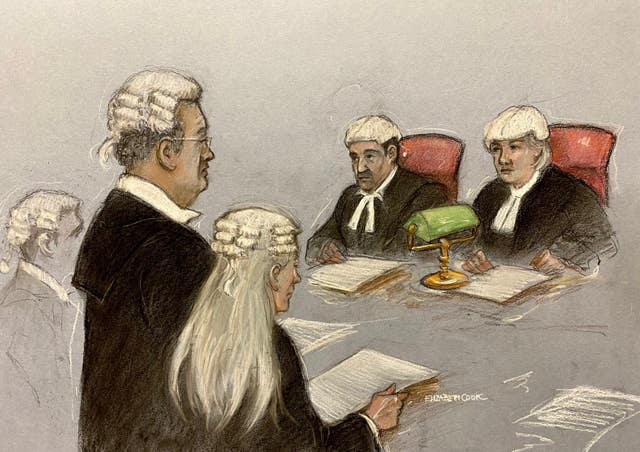
– May 1: Assange is sentenced to 50 weeks’ imprisonment by Southwark Crown Court. He continues to be held on remand in Belmarsh from September after serving the custodial sentence.
– May 19: Swedish authorities resume their investigation into the alleged rape.
– November 19: The alleged rape investigation is discontinued.
– 2020
– January 13: Assange appears at Westminster Magistrates’ Court and is backed by dozens of supporters including rapper MIA.
– February 24: Assange faces an extradition hearing at Woolwich Crown Court, where his representatives argue he cannot legally be handed to the US for “political offences” because of a 2003 extradition treaty.
– March 25: Assange appears via video link at Westminster Magistrates’ Court, where he is refused bail amid the coronavirus crisis.
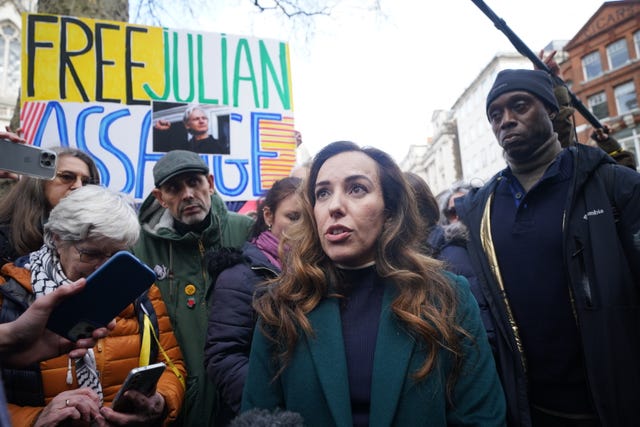
– June 24: The US Department of Justice issues an updated 18-count indictment over Assange’s alleged role in “one of the largest compromises of classified information in the history of the United States”.
– August 25: Ms Moris visits Assange in Belmarsh Prison for the first time in almost six months.
– September 7: Assange’s extradition hearing resumes at the Old Bailey.
– November 26: Ms Moris urges Mr Trump to pardon Assange before he leaves office.
– 2021
– January 4: A judge at the Old Bailey rules that Assange cannot be extradited to the United States.
– January 6: Assange is refused bail at Westminster Magistrates’ Court as the US government appeals against the decision to block his extradition.
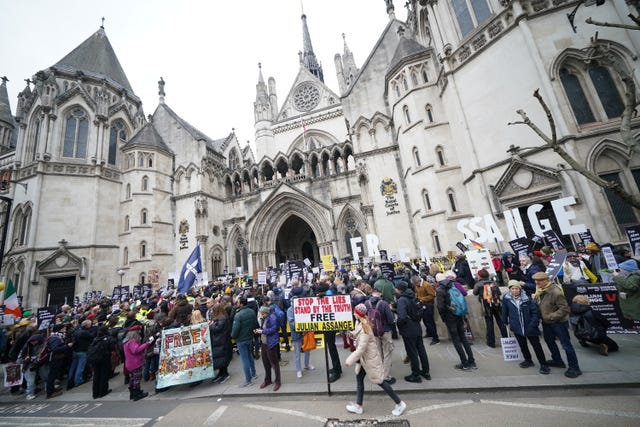
– November 11: Sources tell the PA news agency that Assange has been given permission to marry Ms Moris in Belmarsh Prison.
– December 10: The US government wins its High Court bid to overturn the judge’s decision not to extradite Assange.
– December 14: Australia’s deputy prime minister Barnaby Joyce speaks out to say Assange should not be extradited, but instead be kept in Britain and tried there or returned to his home nation.
– December 23: Ms Moris says Assange’s lawyers have started the process towards a Supreme Court appeal over his extradition to the US.
– 2022
– January 24: Assange wins the first stage of his Supreme Court appeal bid against a decision to allow his extradition to the US.
– March 14: Assange is denied permission to appeal against the High Court’s decision in December 2021 to extradite him to the US, the Supreme Court confirms.
– March 23: Assange marries Ms Moris at Belmarsh Prison in a private ceremony lasting around three hours, with six guests including the couple’s two young sons and Assange’s father, John Shipton.
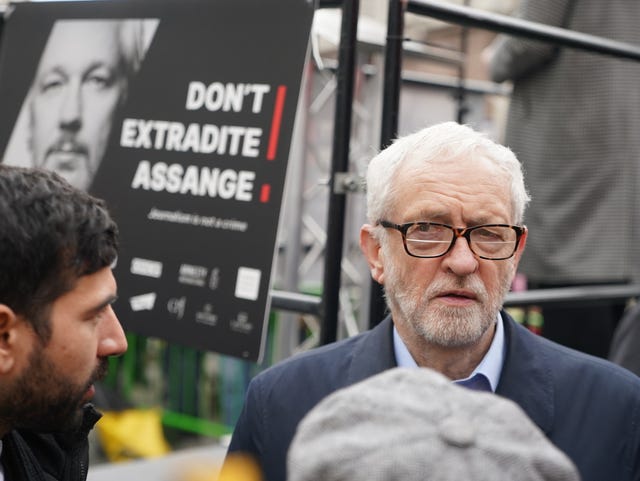
– June 17: Ms Patel signs the extradition order. Assange has the usual 14-day right to appeal.
– June 20: Australia’s prime minister dismisses calls to publicly demand the US drops its prosecution of Assange after the WikiLeaks co-founder’s wife expressed hopes the government in Canberra would intervene.
– July 1: Assange lodges an appeal against a decision to extradite him to the United States.
– July 20: Assange’s wife expresses her gratitude to Mexico’s president after he repeated an offer of asylum for the WikiLeaks founder.
– August 15: US journalists and lawyers who visited Assange file legal action against the CIA and its former director, Michael Pompeo, over “spying” on Assange’s visits.
– September 16: Assange awarded “keys to Mexico City”.
– October 8: Comedian and actor Russell Brand and former Labour leader Jeremy Corbyn join hundreds of protesters outside the Palace of Westminster to demonstrate against the extradition of Assange.
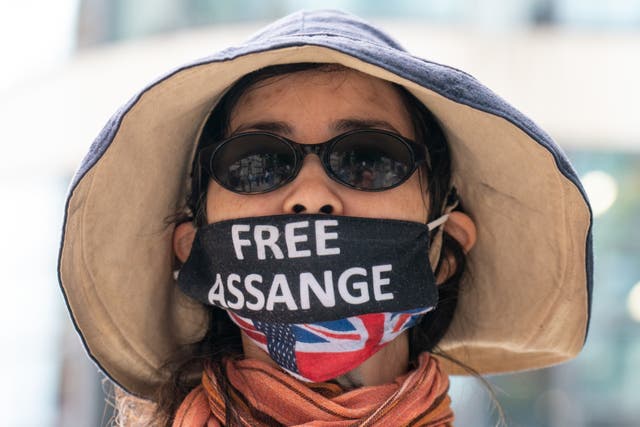
– October 13: Assange is selected as one of three finalists for The Sakharov Prize for Freedom of Thought.
– November 29: Brazil’s president-elect voices support for the campaign to free Assange.
– November 30: Australia’s Prime Minister Anthony Albanese says he recently told US President Joe Biden’s administration to end the prosecution of Assange.
– 2023
– January 22: The campaign to free Assange steps up following support from the presidents of all major Latin American countries.
– February 11: About 2,000 campaigners stage a “night carnival” in London to call for the release of Assange.
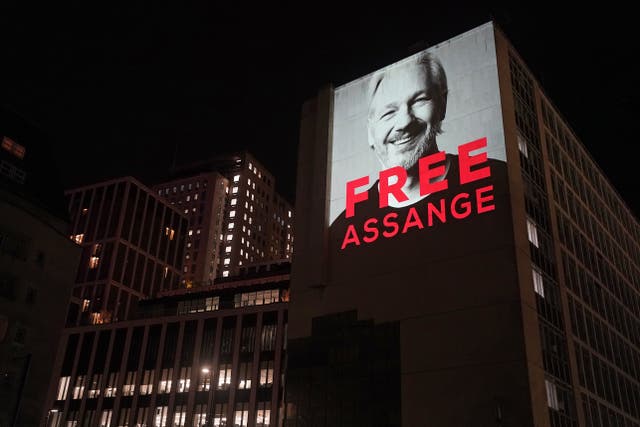
– April 10: A letter to the US attorney general is signed by 35 parliamentarians calling for extradition proceedings to be dropped against Assange on the fourth anniversary of his detention at Belmarsh Prison.
– May 5: Australian Prime Minister Anthony Albanese says there is “nothing to be served” by the ongoing incarceration of Assange as he expressed frustration at the United States’ continuing efforts to extradite the WikiLeaks founder and Australian citizen.
– May 5: Assange writes to the King asking the monarch to visit him in prison.
– May 6: After attending the coronation of the King in London, Brazil’s President Luiz Inacio Lula da Silva denounced the lack of concerted efforts to free Assange.
– May 17: Assange’s wife describes the UK TV premiere of a film about the campaign to free the WikiLeaks founder as a “hugely significant” moment.
– June 9: Assange loses latest extradition appeal bid.
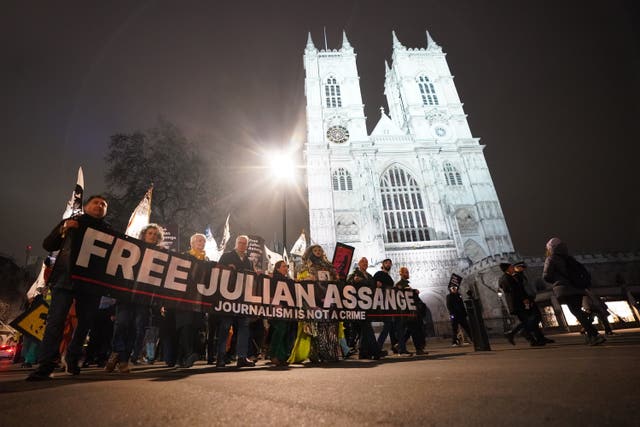
– July 29: US secretary of state Antony Blinken pushes back against Australian demands for an end to Assange’s prosecution, saying he is accused of “very serious criminal conduct” by publishing a trove of classified documents more than a decade ago.
– September 23: Friends of Assange call his ongoing prison detention “outrageous” after holding a bike protest in his name.
– 2024
– January 10: The lawyer for Assange says the WikiLeaks founder’s life “is at risk” if his final appeal against his extradition to the US fails.
– February 15: Australia’s House of Representatives ramps up pressure on the United States and Britain to end the prosecution of Assange by passing a motion calling for the Australian citizen to be allowed to return to his home country.
– February 15: Assange’s wife warns that the WikiLeaks founder “will die” if he is extradited to the US, ahead of his High Court appeal.
– February 20: The United States’ bid to prosecute Assange is “state retaliation”, the High Court hears, in his final bid for an appeal in the UK.
– March 26: Two judges at the High Court decline to dismiss or grant Assange’s bid for an appeal, giving the US authorities three weeks to provide “satisfactory assurances”.
– April 17: The two judges confirm the US authorities have provided an assurance to the court, meaning a decision on Assange’s appeal bid will be considered at a hearing in May.
– May 20: Assange is given the go-ahead to bring an appeal on the grounds he may be discriminated against and not able to rely on free speech protections in the US.





